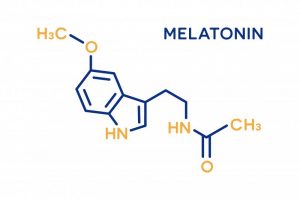OK, should I take melatonin or not?
December 10, 2013

I would like to say that I have a definitive answer for that question, but as it turns out, the answer is: “It depends”. There is a plethora of research out there on the effects of melatonin, and most studies show it to have benefits even beyond helping you sleep. However, I will keep my comments related to sleep, as this is the reason most of you are taking (or have taken) melatonin.
First, let’s talk about dosage. This study, primarily among older patients, showed that .1 mgs, was too little, while the typical pharmacologic dose (3 mgs) is too much, so .3 mgs appears to be the best. Speaking of dosage, this study showed that even if you get a perfect dosage for yourself, after a few weeks, if you begin to lose the effects, you may need to actually decrease the dosage (I’m sure that won’t make sense to you, but play along with the research, OK?). Speaking of finding the best dosage for you, this study showed that everyone is different, as various psycho-somatic conditions might require different dosages.
Another consideration is the presence of other sleep disorders. For example, if you also have sleep apnea, there is little chance melatonin will help you, as is shown in this study. Oh, and if you are a rat (I am unaware of any rodents with the ability to read, so maybe this is a moot point), you might get constipated if you take melatonin.
Now to what really matters. According to the literature, just how helpful will melatonin be? A meta-analysis was done, looking at 15 past studies to get an average, and these were the conclusions:
- Sleep onset was improved by 3.9 minutes. This means that after your head hits the pillow and you attempt to fall asleep, melatonin gets you to sleep about 4 minutes faster. sleep efficiency improved by 3.1% and sleep duration increased by 13.7 minutes
- Sleep efficiency improved by 3.1%. Sleep efficiency is measured like this. Let’s say you went to sleep at 10 and awoke at 6, but had 2 hours of wake time in between (getting up to use the restroom, reading, lying there awake, etc..), your sleep efficiency would be 75% – this means you were asleep for 6 out of the 8 hours. If you used melatonin, your efficiency would have been 78.1% instead of 75.
- Finally, sleep duration increased by 13.7 minutes. I think that speaks for itself.
Basically, there is considerable controversy out there, but MOST believe that there is no negative feedback (down-regulation) that will slow down endogenous melatonin production. That means that your own body won’t necessarily make LESS melatonin just because you are taking it by mouth. However, with the minimal effects it has when looking at 15 studies (in the meta-analysis), with the narrowed (and confusing) window of dosages in some populations and with the limited use when other issues are present, I am not sure I can ever suggest long term use of melatonin to my patients. I can support taking it for the short term, but if you really want to take it every night over a long period of time, please consult your physician, and I hope he or she has some knowledge in the area of sleep medications beyond what the pharmaceutical salespeople have taught them.
Kent Smith DDS, D-ABDSM
